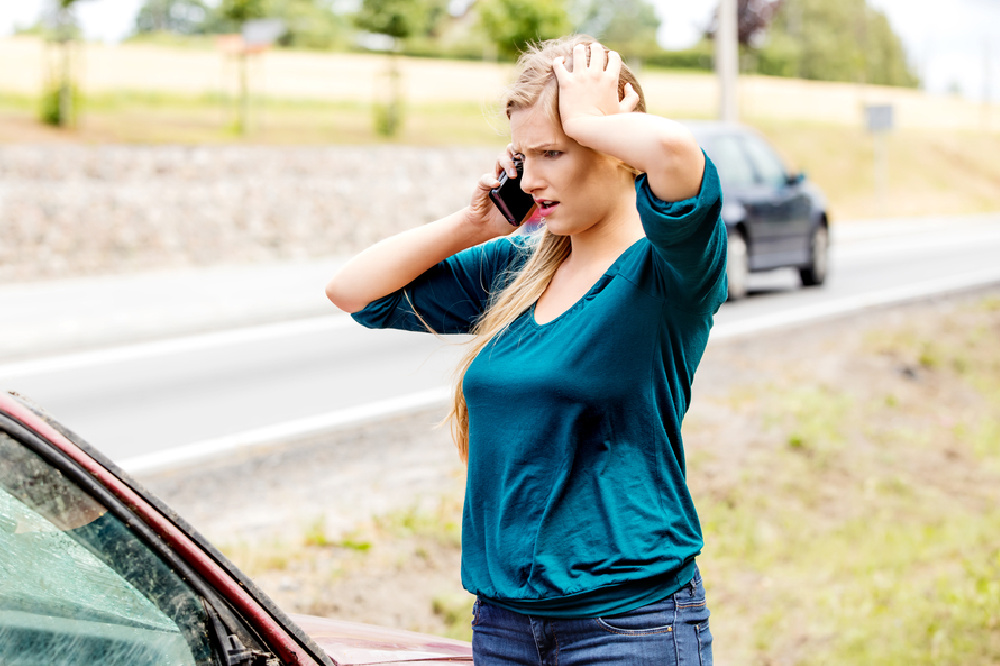Every action taken after a car accident, from the immediate moments after the crash to the resulting recovery and claims process, is critical. There’s no doubt that car accidents, including even minor crashes, are stressful and traumatic events. But in the moments, days, and weeks following a crash, do your best to think clearly and adhere to these important steps.
Conversely, there are some actions that should be avoided after an accident. Even though accidents are stressful and frightening events, knowing what not to do is essential to fostering your recovery and supporting your case for compensation.
Take Action After a Crash
Get Medical Attention
No matter the severity of your crash, make sure you’re as safe as you can be and that any and all injuries are attended to as quickly as possible. If you are able, call for medical help right away and make sure others involved receive medical attention, too. Internal injuries might not be apparent but could still be serious. A check-up from a medical professional will also ensure that you have medical documentation for your case.
Exchange Contact Information
Be sure to get contact information from the other driver as well as their insurance information. If any eyewitnesses were around, also ask for their contact information. Contact information should include a name, phone number, address, and email address. Insurance information should include an insurance company name and policy number.
Report the Accident to the Police
An accident report will have to be made for every accident, including minor accidents. Call the police to make such a report, and ask for a copy of the accident report after one is made. A police accident report is a critical piece of evidence for any car accident claim and case.
Take Photos and Documentation
If you are able, it is best to photograph any damage to your car and any other cars and property involved in the accident. If there are tire skid marks or other visible evidence on the road or in the surrounding area, take photos of that as well. Any injuries should be photographed.
As your ability permits, begin to write down any details and recollections from the accident. You will want to remember as much crucial information and as many details as you can. Information such as the name of the street you were traveling on, the time of day, and even the badge number and name of the officer who responds to the accident are all important. Any bills, paperwork, and other documentation that you receive in subsequent days and weeks should be filed and kept on hand.
Notify Your Insurance Company
A timely accident notification to your insurance company is necessary. While your comments should be brief and describe only the facts from the accident, a timely notification will help your claim. An insurance representative will also help you to start the claims process.
Contact a Personal Injury Attorney
From the start, an Indiana car accident attorney can help to ensure that your case is strong and that details are in line to help you get the compensation that you’re owed. Insurance companies are, frankly, most concerned about paying out as little money as possible. Therefore, an experienced attorney can help build your case and make sure everything is in place from the start.
Avoid These Mistakes Following a Crash
Leave the Scene
Regardless of who is at fault, you should not leave the scene of the accident. Wait until medical responders arrive at the accident scene and until police can finish responding to the scene or make their accident report.
Admitting Fault
While it is important to make sure everyone is all right and to get medical help as quickly as possible, do not apologize for an accident or admit fault. In fact, questions and conversations about blame should not take place. Discussing blame is a conversation best left for your attorney. An apology can be seen as admitting fault, which could hurt your case.
Accepting a Settlement
An insurance company might try to quickly offer you a settlement for your accident. However, you do not need to and should not accept an initial offer from an insurance company without presenting it to your attorney. Insurance companies typically offer less compensation than you are actually owed. Therefore, such situations should be directed to and discussed with your attorney first.
Failing to Collect Evidence
Photographic evidence, eyewitness testimony, and even medical reports are all crucial evidence when determining compensation for a car accident. Therefore, it is important to take the steps necessary to accrue and collect this evidence. Determining liability can be complicated, and having evidence in place will greatly support your case.
Putting Off Contacting an Attorney
Dealing with the stress and trauma of a car accident can be greatly reduced by contacting an experienced legal team from the start. At Crossen Law Firm, we will make sure that we’re doing everything we can to protect your claim so that you receive fair compensation.
Contact us today for a free consultation about your case.

 317-401-8626
317-401-8626 
.jpg)